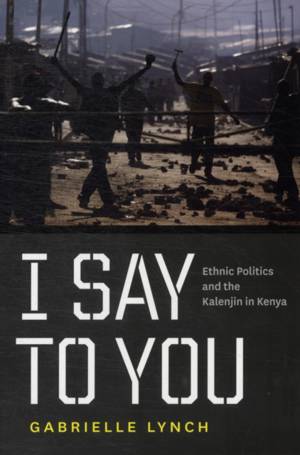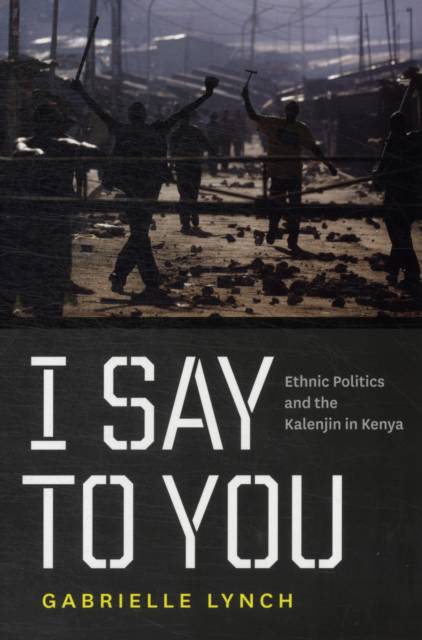
Je cadeautjes zeker op tijd in huis hebben voor de feestdagen? Kom langs in onze winkels en vind het perfecte geschenk!
- Afhalen na 1 uur in een winkel met voorraad
- Gratis thuislevering in België vanaf € 30
- Ruim aanbod met 7 miljoen producten
Je cadeautjes zeker op tijd in huis hebben voor de feestdagen? Kom langs in onze winkels en vind het perfecte geschenk!
- Afhalen na 1 uur in een winkel met voorraad
- Gratis thuislevering in België vanaf € 30
- Ruim aanbod met 7 miljoen producten
Zoeken
€ 62,95
+ 125 punten
Omschrijving
In 2007 a disputed election in Kenya erupted into a two-month political crisis that led to the deaths of more than a thousand people and the displacement of almost seven hundred thousand. Much of the violence fell along ethnic lines, the principal perpetrators of which were the Kalenjin, who lashed out at other communities in the Rift Valley. What makes this episode remarkable compared to many other instances of ethnic violence is that the Kalenjin community is a recent construct: the group has only existed since the mid-twentieth century. Drawing on rich archival research and vivid oral testimony, I Say to You is a timely analysis of the creation, development, political relevance, and popular appeal of the Kalenjin identity as well as its violent potential. Uncovering the Kalenjin's roots, Gabrielle Lynch examines the ways in which ethnic groups are socially constructed and renegotiated over time. She demonstrates how historical narratives of collective achievement, migration, injustice, and persecution constantly evolve. As a consequence, ethnic identities help politicians mobilize support and help ordinary people lay claim to space, power, and wealth. This kind of ethnic politics, Lynch reveals, encourages a sense of ethnic difference and competition, which can spiral into violent confrontation and retribution.
Specificaties
Betrokkenen
- Auteur(s):
- Uitgeverij:
Inhoud
- Aantal bladzijden:
- 296
- Taal:
- Engels
Eigenschappen
- Productcode (EAN):
- 9780226498058
- Verschijningsdatum:
- 1/11/2011
- Uitvoering:
- Paperback
- Formaat:
- Trade paperback (VS)
- Afmetingen:
- 152 mm x 229 mm
- Gewicht:
- 430 g

Alleen bij Standaard Boekhandel
+ 125 punten op je klantenkaart van Standaard Boekhandel
Beoordelingen
We publiceren alleen reviews die voldoen aan de voorwaarden voor reviews. Bekijk onze voorwaarden voor reviews.









